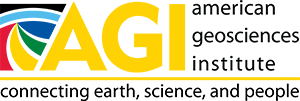Professionalism refers to the attitudes and behaviors that impact interpersonal relations in the workplace, the foundations of which are based on the concepts of power, trust, respect, responsibility, justice, and fairness. The nature of the Geosciences (e.g., working with an incomplete record, temporal and spatial scales beyond human perception, uncertainty in natural systems), and the geoscience work environment (e.g., in the field, laboratory, with extensive travel) presents many situations where ethical dilemmas may arise. Recent high-visibility transgressions have brought special attention to sexual harassment and bullying in the workplace. Everyone has a right to a safe, inclusive, supportive, and productive work environment and a high bar must be set for both students and faculty to ascribe to the highest professional standards of the discipline. This webinar will introduce topics that contribute to workplace "climate" (e.g., microaggressions, implicit bias, empowering bystanders), and will provide suggestions for personal and institutional actions that can be taken to ensure that everyone can succeed in your workplace environment.
This is an asynchronous short-course that contains videos, resources for learning more, and a set of questions in each section to help facilitate learning. An asynchronous course is a course that can be done on your own time. Feel free to pause, take a break, and come back to your saved progress to continue with the course. There is no deadline for completion of this course.

